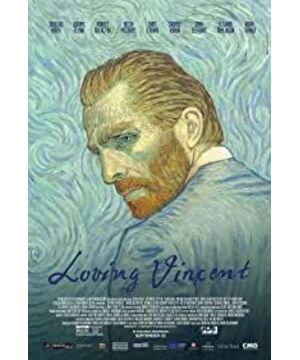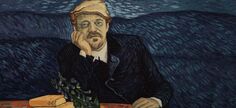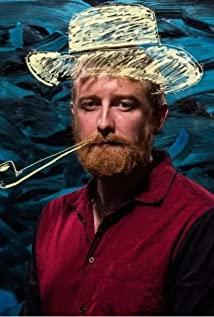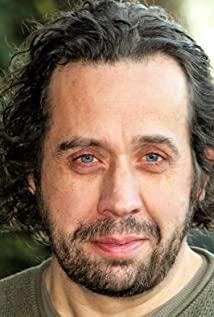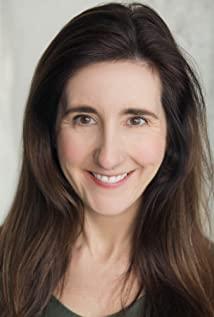Zuckerberg: Who killed Van Gogh?
One was a 37-year-old downturned artist. There were more than 900 works before his death, only one was sold, but the painting after his death became the capital of billionaires vying to show off-Van Gogh; the other was 33-year-old sitting on the Internet Kingdom, the youngest billionaire in history to enter the world's top 5 billionaires, a model of young people's success-Mark Zuckerberg.
Every family does not want to have a child who is ashamed and hated like Van Gogh, but every family hopes that they can give birth to an outstanding child like Zuckerberg.
After a difference of 131 years, what is surprisingly similar to them, whose plots seem to be very different?
Zuckerberg
Standard
1. Have a dream
He has been a computer prodigy since he was a child, hoping to use technology to change the world.
2. There are people who support him materially
When he was 10 years old, his father bought him a computer. After discovering that he was very interested in computers, he specially invited a computer engineer to teach software development techniques.
When he grew up, he dropped out of school and started a business, and his family silently supported him. In his Harvard speech in May this year, he mentioned:
"At that time, I just launched a prank website, Facemash, and the management committee said "I want to see me." Everyone thought I was going to be driven away. My parents came to help me pack my luggage; my friend helped me have a farewell party. "
It is the parents who are so supportive of their children that they will silently help him pack his luggage when he learns that his child may be driven away from the school?
3. A suitable place for dreams to start-the United States
After independence, the United States implemented a "free immigration" policy, attracting a large number of talents. It is precisely because of the participation of elites that American science and technology has developed by leaps and bounds after World War II, including the development of nuclear weapons, the implementation of the "Apollo Moon Landing Program", the birth and application of computers, etc., to a large extent relying on emigration to the United States. Of scientists. For example, Andy Grove, who founded Intel, came to the United States from Hungary in 1951.
The emphasis on talents and the encouragement of technological innovation have allowed more scientific and technological people to take root in the United States.
4. Special persistence
I have been interested in computers since I was a child, and insisted on using the Internet to change the way people around the world communicate.
In high school, he designed an MP3 player for the school. After that, many companies in the industry offered him an olive branch, including Microsoft. But Zuckerberg rejected a job offer with an annual salary of $950,000 and chose to go to Harvard University.
At Harvard, he hacked into a school database and used student photos on a website he designed for his classmates to evaluate each other’s attractiveness.
Soon after the hacking incident, Zuckerberg and his two roommates spent a week writing website programs and set up a website that provides a platform for Harvard students to communicate with each other, named Facebook.
Facebook was launched in February 2004, sweeping the entire Harvard campus. At the end of 2004, the number of Facebook registrations had exceeded one million, and Zuckerberg dropped out of Harvard altogether to run the website full-time.
Van Gogh
Standard
1. Have a dream
Van Gogh was born into a pastor's family in the Dutch countryside. In his early years, he worked as a clerk, a business broker, and a missionary in a mining area. He is full of illusions, but he has repeatedly suffered setbacks and failures in his life.
Finally, at the age of 28, he was encouraged by his younger brother. Dedicated to painting, determined to "fight hard with myself in painting", painting even just before death!
2. There are people who support him materially
His family and relatives were very disappointed in his unwilling career and emotional frustration.
Only his brother Theo, a small art dealer in Paris, supported him. For ten years, I sent him 50, 100 or 200 francs of living expenses once or twice a month without interruption to support his purchase of canvas and paint.
In his lifetime, Van Gogh wrote more than 800 letters, most of which were addressed to Theo.
3. A suitable place for dreams to start-France
In the 19th century, the French National Art Exhibition (also known as the Salon Exhibition) provided an opportunity for every painter. It was organized by the state and had great authority. Once a painter’s work was selected, it marked talent and ability.
Because of this, France has attracted painters from all over the world to show them the stage of heroism. At the same time, France has become the confluence of European fine arts for hundreds of years since the Renaissance.
In Paris, Van Gogh met a new generation of artists in the Fernand Cormon studio under the introduction of his brother Theo.
4. Special persistence
Relying on Theo's meager funds, Van Gogh persisted in the art of painting.
He has almost never learned to paint, and constantly seeks out his own style of painting from different types of paintings. He admired Miller and also admired the Japanese style of Ukiyo-e.
Once settled in Arles, and wanted to set up his own studio in the "Yellow House", and even invited his friend Gauguin to live with him. Eventually the two broke due to character reasons, Van Gogh cut off his left ear, Gauguin After returning to Paris, he refused to see Van Gogh again.
"The Wheat Field Where Crows Fly" is the last oil painting created by Van Gogh. A few days after the completion of this work, Van Gogh stood in the same wheat field, pointed his gun at himself, and died after suffering two days of suffering, at the age of 37.
In the past nine years, more than 900 works have been painted, and only one has been sold. But he never gave up and continued to paint; until the end of his life, he firmly believed that his art would one day shine with dazzling light.
After his death, many works were sold at auction prices of more than ten million U.S. dollars.
In 1987, "Iris" was sold for 53.9 million U.S. dollars; in the same year, "Sunflower" was sold for 39.5 million U.S. dollars; in 1990, "Portrait of Doctor Gachet" was sold to Japanese collectors for 82.5 million U.S. dollars; at the end of 1998 , "Beardless Self-Portrait", sold for US$71.5 million; in 2014, "Daisy and Poppy" was sold for approximately US$61.8 million with a commission, which was approximately RMB 377 million at that time.
Fork
They all have dreams, have family support, set off at the suitable dreams, and stick to them. But we have seen different stories and different results, so we can't even remember that they have similarities.
Where is their violent bifurcation?
about family
Zuckerberg has always had an inseparable connection with computers. His goal is so clear, is he himself in the early morning of 3 years old, suddenly woke up to find that he is a genius of science and technology, so he has to follow technology?
The story is certainly not that exciting. The family has a profound influence on his guidance. His parents did not tell him, "You must be a doctor!", but gave him enough freedom to play and create.
He likes to play with computers, so he buys a computer for him, and finds a teacher to play with him; he likes to write code, let him write; he decides to give up his annual salary of 950,000 yuan, go to university, let him go; he drops out of school Start a business, just support him.
As for Van Gogh, his parents always wanted him to do what they wanted. For example, at the beginning, he was arranged to join his uncle's company as an apprentice as a painting dealer, but he could not be kind at all, and was finally swept out. Later, because my father was a pastor, in order to satisfy his parents, he also became a pastor, but I didn't need to talk about it.
His extreme depression came from wanting to flatter his parents on the one hand, while on the other he smelled his passion strongly. Pulling on both sides, until the age of 28, with the encouragement and support of my younger brother, can I truly devote myself to my love.
about public opinion
If we say that Zuckerberg's success lies in being born at the right time, isn't Van Gogh born at the right time?
When Van Gogh was a student, becoming an artist is as popular as becoming an entrepreneurial ceo now.
But the public opinion around Van Gogh was too harsh on him. I think this is probably an important reason why Zuckerberg said he was the "lucky one" in his recent Harvard speech.
For Van Gogh, who could only realize his ideals in life at the age of 28, people around him began to scream that he was a "clan of gnawing brothers", a lunatic. Except for his younger brother, his family felt that he was selfish, his friends felt that he was paranoid, and his neighbors felt that it was unreasonable that he regarded painting as his only thing. Laughing is already the most basic attack, and further is to openly tease him and beat him.
Even the doctor around him complained about him, he was just a gnawing brother, and it was nothing great.
(But the doctor himself is actually a person who loves art in his heart. He just feels that he has to become a doctor out of responsibility. Therefore, facing the accusation of the doctor, Van Gogh once replied that he is a hypocritical person, saying that he loves art but never followed)
In the end, his closest brother was also shaken under the pressure of just getting married and having children and being seriously ill. The support for the older brother who started to sell one painting was shaken.
(Actually, at this time, some well-known painters have begun to pay attention to Van Gogh, including Monet who also expressed appreciation for Van Gogh's paintings. It can only be blamed, was the information flow too slow at that time? If there was Facebook at that time, the situation would be Wouldn't it be different?)
Van Gogh, who wanted to pursue his ideals, neither killed nor set fire, but was under pressure from overwhelming public opinion. In the end, if he couldn't bear it and ended his own life, maybe even he had to think that he was dragging down the people around him.
A person who may just be clearer than others about what he loves and is more willing to devote himself to, was labelled extreme and lunatic by the so-called normal "masses" in society at that time.
Perhaps until now, our "normal" society is also looking at the "madman" Van Gogh in the same way. I don't understand, why is a person who has a goal he loves deeply, who has no reservations about investing, and works harder to try after getting help, is not a normal person?
In the 21st century, we always think that we will only progress, not regress, or stay. We think that we will only become Zuckerberg, and we think that our children, or our children in the future, will only become Zuckerberg II.
But, can we be sure that the choice space given to them, from the heart, is the 21st century "Zuckerberg" family? Or is it narrow, like the "Van Gogh" family in the 19th century?
Space is so tight that I am afraid to say my love in a small voice. I'm afraid of waking up parents who "say I love you", I'm afraid of disturbing relatives who "say I care about you," or disturbing people who "don't even know who he is".
When you choose the goal you want to pursue, do what you like from the bottom of your heart, even your nerves and even your cells clap your hands to applaud, the first, second, and third questions that appear next to your ears are all around, " Can you make money by doing this?"
GDP is not only a standard for measuring the country, but also a standard for measuring individuals and a standard for measuring households.
When a friend asks us our opinion on something, how about we always link this GDP first? It seems that we can help them find the most objective GDP growth suggestion, which is the answer with heart. When parents care about our work and our personal lives, they actually care about GDP issues.
If your GDP growth is not fast enough to pay back in 3 months, and you can’t let the people who love you see as believable, "don’t worry about you anymore", should your love be shelved? Should your ideal be replaced? Do your instincts that are born with you should be manually removed%……*¥
In order to answer this question, I would like to directly quote-a fragment of Zuckerberg's speech at Harvard University in May this year, as the end of today:
"We should have a society that measures progress not only based on economic indicators such as GDP, but based on how many people can find meaningful roles.
We should explore the concept of "universal basic income" so that everyone has a "buffer" to try new things.
We change jobs many times, which requires us to build nurseries that everyone can afford, and health care that is not linked to the company where we work. We may make mistakes, so we need a society with less restraint and slander. "
Attached to the video of Zuckerberg's Harvard speech:
https://v.qq.com/x/page/v05072r0mpu.html?
View more about Loving Vincent reviews


